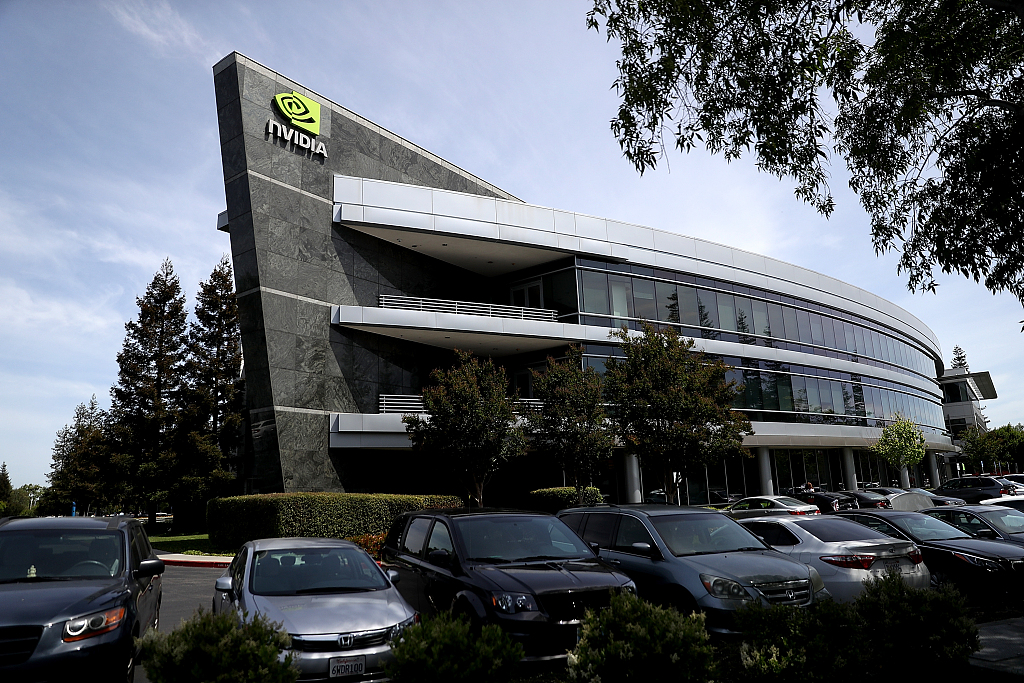Nvidia's Arm takeover to create disastrous US monopoly
- By Zhang Rui
 0 Comment(s)
0 Comment(s) Print
Print E-mail China.org.cn, September 16, 2020
E-mail China.org.cn, September 16, 2020

A co-founder of British chip designer Arm said it was a "disaster" upon hearing SoftBank Group Corps' announcement on Monday that it would sell its entire stake to rival U.S. semiconductor maker Nvidia in a move that could net the conglomerate up to $40 billion to help offset investment losses.
"I think it's an absolute disaster for Cambridge, the U.K., and Europe," said Arm co-founder Hermann Hauser, speaking to BBC Radio 4 on Monday.
In an open letter to Prime Minister Boris Johnson posted on savearm.co.uk, Hauser elaborated his opinions and asked the general public to co-sign his letter.
"I am extremely concerned about the proposed sale of Arm to Nvidia," he wrote. "This concern is shared by many of my colleagues in Cambridge, [members of] the U.K. financial and electronics industry who are all co-signing this letter."
He said there was great concern about the impact on jobs in Cambridge, Manchester, Belfast, Glasgow, Sheffield and Warwick where thousands of Arm employees work. "When the headquarters moves to the U.S., this will inevitably lead to the loss of jobs and influence in the U.K. as we have seen with the Cadbury takeover by Kraft."
He also stated that the sale of Arm to Nvidia will "destroy" the very basis of Arm's business model which is to be "the Switzerland of the semiconductor industry" dealing in an even-handed way with its over 500 licensees, most of which are Nvidia's competitors, so that the new deal will create a monopoly, and implicitly threatening Arm's neutrality.
Thirdly, and most importantly for the long term, it is an issue of national economic sovereignty, he said.
"As the American president has weaponized technology dominance in his trade war with China, the U.K. will become collateral damage unless it has its own trade weapons to bargain with. Arm powers the smartphones of Apple, Samsung, Sony, Huawei and practically every other brand in the world and therefore can exert influence on all of them," Hauser wrote.
Sale to Nvidia will mean that Arm becomes subject to the U.S. OFAC regulations. There are hundreds of companies in the U.K. electronics industry employing tens of thousands of people who use Arm in their products. Many of them export to major global markets including China. They will all have to comply with the U.S. OFAC regulations.
"This puts Britain in the invidious position that the decision about who Arm is allowed to sell to will be made in the White House and not in Downing Street."
Arm is widely seen as the jewel in the crown of the British tech industry. Its chips power most of the world's smartphones, as well as many other devices. According to a joint statement on Sunday, SoftBank would be paid $12 billion in cash and $21.5 billion in common stock by Nvidia.
SoftBank said that along with its Saudi Arabia-backed investment fund it would gain a stake in Nvidia through both cash and stocks of up to 8.1%. The sale should be completed after approval by regulators of the U.K., the EU, the U.S. and China by March 2022, with the statement adding that Nvidia would extend $1.5 billion in equity to Arm employees.
"Joining forces with a world leader in technology innovation creates new and exciting opportunities for Arm," said SoftBank Chairman and CEO Masayoshi Son in the statement. He referred to Nvidia as being the "the perfect partner" for Arm.
"We are joining arms with Arm to create the leading computing company for the age of AI," Nvidia founder and CEO Jensen Huang, a Chinese American entrepreneur, said on Sunday in a letter to his employees, adding that by uniting Nvidia's AI computing with the vast reach of Arm's CPU, the company will engage the giant AI opportunity ahead and advance computing from the cloud, smartphones, PCs, self-driving cars, robotics, 5G and IoT.
But Hermann Hauser insisted there were three conditions in the deal that should all have to be legally binding or they would be prove useless: "Legally binding job guarantees for Arm employees in the U.K.; a legally binding agreement that Nvidia must not gain any preferential treatment over other Arm licensees. Britain must get an exemption from the U.S. OFAC regulation so that U.K. companies are guaranteed unfettered access to our own microprocessor technology."
"Moving British control to an American company is a transparent attempt to checkmate Chinese technology by denying them access to chips. ZTE was first, Huawei was second, Chinese leading tech companies in facial recognition and AI were third, the rest of the Chinese cell phone and tech companies will be next," said Einar Tangen, a political and economic affairs commentator based in Beijing.
He predicted that as Nvidia competes to monopolize current tech, China's Huawei is about to disrupt the market with new tech, the cloud phone with unlimited processing, long battery life and a new app and service ecosystem.
"Interestingly, Trump's moves to weaken China are only making it stronger. The assumption that a digital divide would benefit the U.S. is about to unravel. American companies will be laying off thousands due to lost sales and future business in China. Qualcomm could lose over 60% of its sales, Apple 25%, and the list goes on. American tech will be decimated, the resulting lost steps could have repercussions for years to come," Tangen added.






Go to Forum >>0 Comment(s)